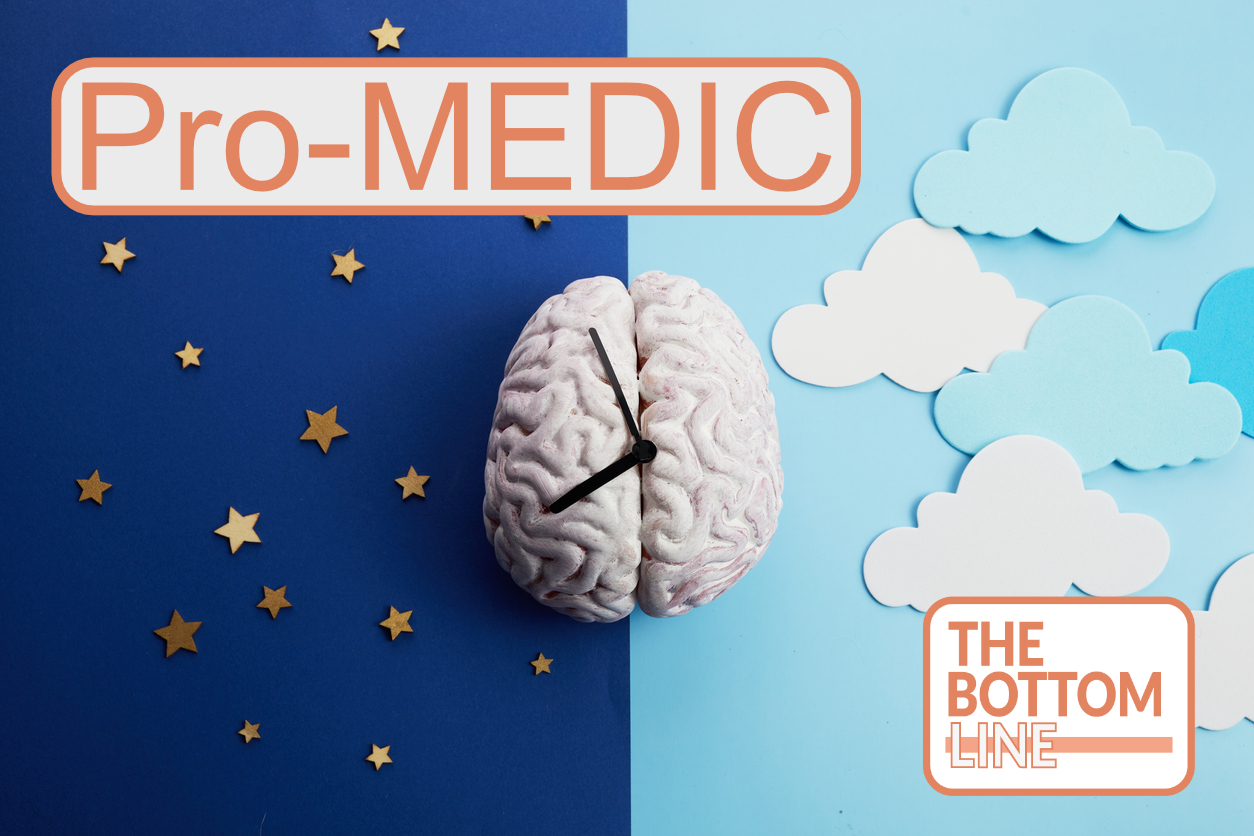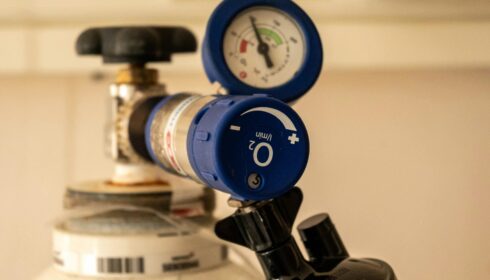Pro-MEDIC

Prophylactic melatonin for delirium in intensive care (Pro-MEDIC): a randomized controlled trial
B Wibrow. Intensive Care Medicine 2022. doi: 10.1007/s00134-022-06638-9
Clinical Question
- In adults with an expected ICU stay of > 72 hours, does the provision of enteral melatonin compared to placebo increase the number of delirium-free assessments within 14 days or before ICU discharge?
Background
- Delirium is highly prevalent in ICU with associated increased mortality and morbidity
- Melatonin concentrations are lower in those patient with delirium compared to those without
- Melatonin has been shown to speed up sleep initiation and improve sleep efficiency without changing the sleep cycle
- Small and predominantly single centre studies have shown a benefit of melatonin improving delirium rates; however these results haven’t been reproduced in large, multi-centre RCTs
Design
- Multi-centre, randomized, placebo-controlled, double-blind trial
- Randomised in 1:1 ratio via compute generated list
- Stratified by site in blocks of 6
- Melatonin and placebo manufactured in liquid form with identical physical characteristics
- CAM-ICU assessment tool performed twice daily on all assessable patients
- Sub-set of patients had serum melatonin concentrations measured 2-3 hours post administration
- Local ethical approval
- DMSB included a sleep physician
- Sample size
- Based on prospective data from two main hospital sites involved
- 54% assessments deemed delirium free (SD 45%)
- To detect a 10% absolute increase in delirium free assessments with 80% power and alpha of 0.05 required 319 patients in each arm
- Rounded to 425 patients in each group to allow for non-parametric tests, missing data and loss to follow-up
Setting
- 12 ICUs in Australia
- July 2016 – September 2019
Population
- Inclusion:
- Adults (>18 yo)
- Admitted to ICU with an expected LOS > 72 hours
- Within 48 hours of ICU admission
- Exclusion:
- Already receiving melatonin
- Pregnancy / Breastfeeding
- Expected death within 48 hours
- Treating clinician believed that a delirium assessment within the next 14 days would not be possible due to persistent neurological dysfunction
- No enteral route
- Hepatic impairment
- 2764 met inclusion criteria
- 1478 excluded –> 1286 eligible
- 847 enrolled
- Baseline demographics similar (comparing melatonin vs placebo)
- Age: 62 vs 62
- Regular alcohol use: 34% vs 39%
- Past psychiatric presentation: 16 vs 18%
- Pre-DELIRIC score: 45.3 vs 42.7
- CAM +ve at baseline: 10% vs 8%
- Emergency ICU admission: 82% vs 80%
- Sepsis as diagnosis: 24% vs 23%
Intervention
- Melatonin
- 4mg (2mls) at 21:00 for 14 nights or until ICU discharge
Control
- Placebo
- 2mls of placebo at the same time
Management common to both groups
- All other care at treating clinicians discretion
- Staff advised to de-sedate patients as much as possible and allow flexibility in time of CAM-ICU assessment to minimise un-assessable patients
Outcome
- Primary outcome:
- Number of delirium free assessments per patient: 79.2% (melatonin) vs. 80.0% (placebo); p = 0.547
- Comparing melatonin group vs placebo group:
- Number of assessments performed: 2975 vs 2846
- Number of assessments per patient (median): 5 vs 6
- Number of non-assessable time points: 19.8% vs 17.7%
- Number of missed time points: 16.6% vs 17.7%
- Comparing melatonin group vs placebo group:
- Number of delirium free assessments per patient: 79.2% (melatonin) vs. 80.0% (placebo); p = 0.547
- Secondary outcomes:
- Comparing melatonin vs placebo
- No significant difference in
- Average percentage of delirium free days: 79.5% vs. 80.2%
- Average percentage of delirium and coma free days: 64.2% vs 67.6%
- Participants with delirium: 35.1% vs 32.7%
- No difference in sleep quantity or quality
- > 40% in both groups had sleep quality and quantity rated as poor or very poor
- Requirement for anti-psychotics: 21.2% vs 19.4%
- ICU LOS: 5 vs 5 days
- Hospital LOS: 14 vs 12 days
- 90 day mortality: 15.5% vs 15.6%
- Subgroups:
- No difference in any subgroup (Age, Sex, Baseline delirium state, ICU diagnosis and risk of delirium by pre-DELIRIC)
- No adverse events in any group
Authors’ Conclusions
- Enteral melatonin within 48 hours of ICU admission did not reduce the prevalence of delirium compared to placebo
Strengths
- Multi-centre
- Randomised
- Double-blind and placebo controlled
- Pre-published statistical analysis plan
- Local data used in sample size calculation
- Minimal loss to follow up (increases power of study)
- Plausible rationale for use of melatonin and data collected to show that melatonin levels increased post administration
- Median serum concentration was 19.4 ng/ml in melatonin group vs < 0.1 ng/ml in placebo
- Excellent collection of data (pharmacological and non-pharmacological therapies) that could act as confounders
- Largest study to date regarding a treatment which is widely used with a mixed, limited and heterogenous evidence base
Weaknesses
- Large numbers excluded. Of those screened:
- ~10% were not expected to improve within 14 days
- ~7% unable to perform CAM-ICU for preceding reason
- ~11% other
- Rates of missed assessments were marginally higher than expected, and allowed for in the sample size calculation
- ~9% were CAM +ve at baseline
- Only one dosing regime used for all patients – would a higher dose or SR release formulation be more appropriate?
- The authors provide a solid rationale for the decision to use 4mg – 10mg has been shown to have supratherapeutic day time level
The Bottom Line
- This trial provides high quality evidence that although safe, 4mg melatonin does not affect rates of delirium
- Interestingly sleep quantity and quality was not improved (albeit as a secondary outcome); this will make me re-consider my use of melatonin routinely
External Links
- article Prophylactic melatonin for delirium in intensive care (Pro-MEDIC): a randomized controlled trial
- editorial Melatonin in ICU delirium: shining light on the hormone of darkness
Metadata
Summary author: George Walker @hgmwalker89
Summary date: 5th December 2022
Peer-review editor: David Slessor
Picture by: nambitomo/iStock



